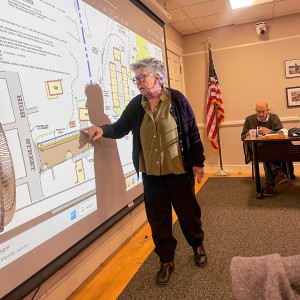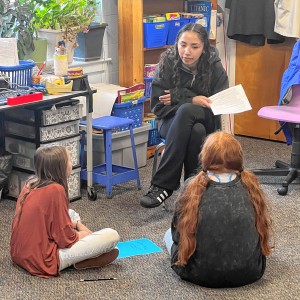Wilton community power proposal offers four options to users
| Published: 01-29-2022 10:49 AM |
After polling the community about its priorities, Wilton has put forth the frame of a community power agreement voters will see at Town Meeting this March, with multiple tiers of renewable energy usage.
Wilton is one of several communities in the state contemplating implementing a community power program. During two public hearings on Monday, representatives of Standard Power, who have been acting as consultants to the town, explained the concept more in-depth, including Wilton’s current plan for what its community power setup would look like.
That plan is based on feedback from 185 residents who responded to a community-wide survey about what their priorities were – such as savings, supporting renewable energy suppliers, or a mix of the two.
“Community power is where a municipality purchases power for residences and small businesses. It affects only the supply portion of your electricity bill, so all transmission, distribution, emergency services and billing services stay with the utility,” said Emily Manns, a community power consultant with Standard Power. “There are hundreds of programs across the country and there are dozens of programs already in New England, but this is a new program in New Hampshire.”
It is so new a concept to the state, in fact, that New Hampshire has yet to approve rules regulating community power programs, though that process is underway. The Public Utilities Commission is in the process of writing rules for how community power programs would operate, and those rules would have to be approved by legislative committee. Still, Manns, along with Bob Hayden, president of Standard Power, said they’re hopeful that process will be completed this year, and allow cities like Keene, Harrisville, Swanzey and Wilton to move forward with their community power plans.
“There are two main reasons communities initiate and launch community power programs, and the first is competitive pricing,” Manns said.
Utility rates are set every six months, Manns said, and for utility companies, that schedule is rigid. A community power program, however, has the ability to leverage group buying power and look for the best deals on the market. Community power takes advantage of bulk buying to get lower prices.
The second main reason communities are interested in community power is to maximize renewable energy options.
Article continues after...
Yesterday's Most Read Articles
 Old Homestead Farm in New Ipswich requests variance for short-term rental cabins
Old Homestead Farm in New Ipswich requests variance for short-term rental cabins
 Scott Bakula starring in Peterborough Players’ ‘Man of La Mancha’
Scott Bakula starring in Peterborough Players’ ‘Man of La Mancha’
 HIGH SCHOOL SPORTS ROUNDUP: Tasha MacNeil leads the way for ConVal at Pelham Invita
HIGH SCHOOL SPORTS ROUNDUP: Tasha MacNeil leads the way for ConVal at Pelham Invita
 Peterborough Farmers’ Market opens for the season
Peterborough Farmers’ Market opens for the season
 Conant girls’ tennis continues to seek improvement
Conant girls’ tennis continues to seek improvement
 Former home of The Folkway in Peterborough is on the market
Former home of The Folkway in Peterborough is on the market
“I think probably the most-important point I can bring to you today is that when we look at this opportunity, it’s a great way not only to lower energy costs but to implement greater levels of renewable energy across our state,” Hayden said.
Manns said it is typical in community power programs to have multiple options for customers – one that maximizes savings and one that maximizes renewable energy. Wilton plans to have at least four tiers available: one that is the best price, one that is a competitive price to Eversource’s default price but increases renewable energy sources, one that is slightly more expensive but sources about half of the energy consumed from renewable sources and one that is 100% renewable energy.
If Wilton voters approve the community power plan, every address with an Eversource account will receive a postcard outlining all four options, along with an opt-out option to remain with Eversource’s default rate. Residents can either mail back the postcard with their selection, or, if they do not mail it back, they will be enrolled in Wilton’s default”choice, which is competitive with Eversource’s default rate, but provides about 5 to 10% renewable energy sources.
In survey responses, the largest amount of residents – about 54% – said they would be in favor of using more renewable energy if it did not cost more, with an additional 11% willing to pay a little more for additional renewable supply and 12% in favor of 100% renewable supply.
Hayden explained that is one of the major benefits of a community power program – choice.
“This is a living opportunity for the community to have input on what their energy is and becomes in the future,” Hayden said. Any resident can change their plan month to month, drop out or join the community power program at any time, without any costs or fees.
“There’s a lot of flexibility with no financial penalties,” Hayden said.
Hayden said those who chose to slightly increase their renewable energy portfolio, if their typical bill is about $200 a month, may pay about $20 more to substantially increase their renewable sources by between 50 and 100% and would likely save by about that same amount if they went with the most cost-effective option.
“They’re small numbers that make a huge impact overall, and send a clear message legislatively that we may or may not want to be more renewable,” Hayden said. He added that for communities which have made goals to become 100% sustainable, individuals having more knowledge about where their supply comes from, and the ability to make those decisions, is a “good first step” towards meeting those goals.
The community power draft plan and survey results are available on the town’s website under the Community Power Aggregation Comtee tab.
Ashley Saari can be reached at 603-924-7172 ext. 244 or asaari@ledgertranscript.com. She’s on Twitter @AshleySaariMLT.

 ConVal attorney answers withdrawal questions
ConVal attorney answers withdrawal questions Peterborough Planning Board approves 14-unit development near High Street
Peterborough Planning Board approves 14-unit development near High Street Franklin Pierce students help foster literacy at Rindge Memorial School
Franklin Pierce students help foster literacy at Rindge Memorial School Peterborough firefighters continue fishing derby tradition
Peterborough firefighters continue fishing derby tradition
